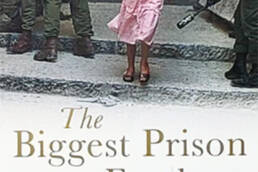Notes:
Contemporary Arab Affairs, Vol. 11, Number 3, pp. 155–160. issn 1755-0912. Electronic issn: 1755-0920. © 2018 by the Centre for Arab Unity Studies. All rights reserved. Please direct all requests for permission to photocopy or reproduce article content through the University of California Press’s Reprints and Permissions web page, www.ucpress.edu/journals.php?p=reprints. DOI: https://doi.org/10.1525/caa.2018.113008
Ahmed El Morabety: Sidi Mohamed Ben Abdellah University, Fez, Morocco.
We appreciate your support
SUPPORT THE CENTRE FOR ARAB UNITY STUDIES
The Centre is reaching out for its friends and readers for support, whether by ordering our publications and paying for them in hard currency, or through donations. The Centre welcomes any support to boost its resiliency, to ensure its survival, the continuation of its legacy and its commitment to tackle issues facing the Arabs and the Arab world.



